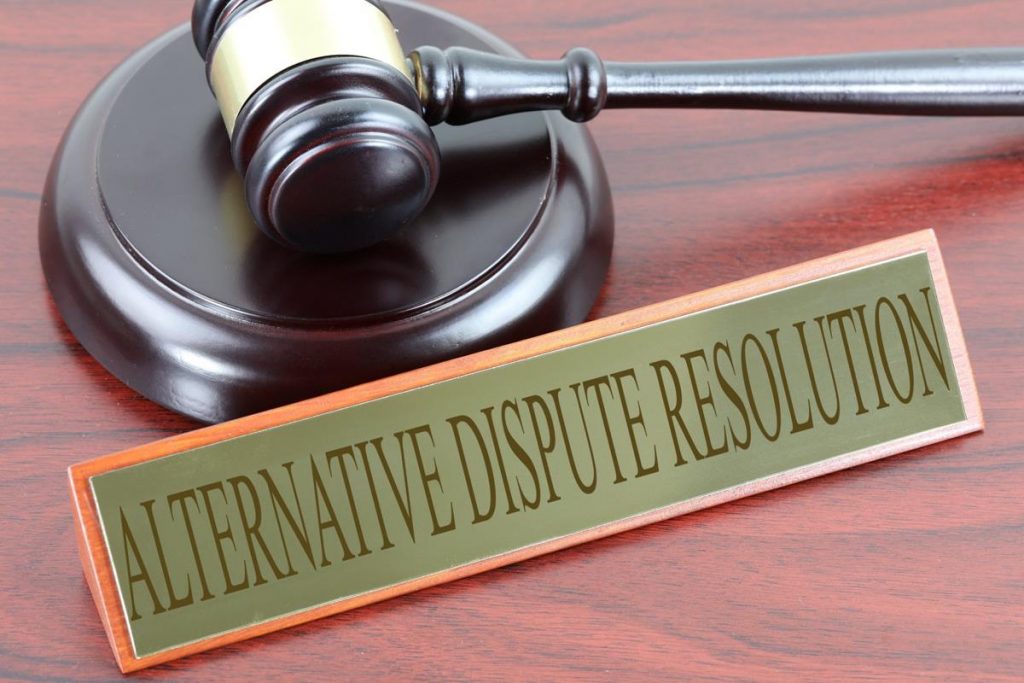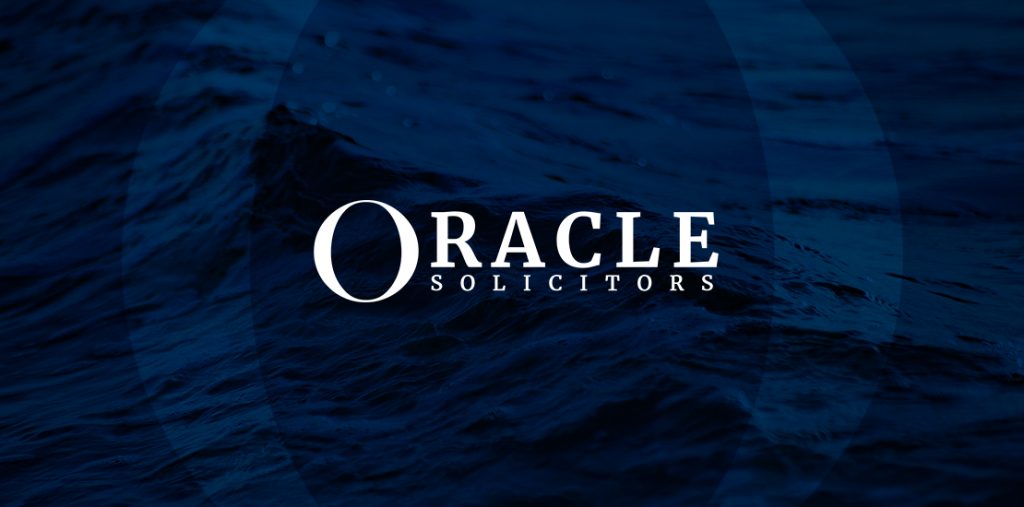-
Why your building site could benefit from temporary CCTV
Over two-thirds of construction site managers report that they have been the victim of theft from one of their projects at one point in time of another.
That is far higher than almost any other industry and highlights the stark reality of security in the construction world at this current point in time.
One of the best things that you can do to ensure that you are not the next in this long list and become yet another statistic is to install CCTV but this is easier said than done on sites that are constantly in a state of flux and probably aren’t connected to utilities such as mains electricity.
Unless you are a major construction firm, you probably also don’t have room in the budget to slash out on a security guard whose sole job it is to monitor your CCTV system.

The solution? Temporary CCTV in the form of a mobile CCTV tower.
These towers are self-standing and self-charging and require no mains access or lengthy installation process. They can be installed on any site in the UK no matter where it is or how long the tower is required.
As long as they are in an area with mobile internet access they will also transmit the images that they record directly to your mobile phone via a smart app which lets you monitor activity on your site even if you aren’t there in person and can save to a load of annoying travel time.
What are the benefits of hiring temporary construction site CCTV?
Temporary construction site security is perfect because construction sites are exactly that, temporary. There is no point installing permanent system at great cost, only to have to tear them down again in a few weeks or months once you move on to another location.
In a similar fashion, as the project develops you may find that you need to move your surveillance system to a new part of the site, another thing that is pretty tricky to do with a wired system.
Benefits of mobile CCTV installation include:
- Deterring Criminals – CCTV towers tower high over construction sites, making it quite clear to any passers-by that they will be seen and reported if they attempt to force their way in.
- Protect your key assets – Your whole site needs to be protected to some extent but some assets are worth a lot more than the rest and need that little bit extra protection.
- Catch criminals – If someone escapes from your site with your assets or vandalises your site, the police will be able to use the images that your shiny new tower creates to find them. You will also be able to us it in an insurance claim to show that you were not at fault and neither were any of your staff.
- Avoid false injury claims – CCTV cameras will reveal the truth behind any injury claim against you for an accident on your site, protecting you from false claims.
-
What to do if you don’t have hot water
Hot water is something that we all use multiple times a day for cleaning the dishes, taking a shower or bath or simply washing our hands.
It is all too easy to take this for granted until the time comes where you go to turn on the tap and freezing cold water is the only thing that comes gushing out.
No-one want to deal with central heating problems especially in the heart of winter and a complete lack of hot water can certainly be classed as a pretty significant problem.
Before you get in touch with a professional there are a few different things that you can check that might be the cause of your lack of heat and are easily fixable.

These include:
- A tripped fuse – If your boiler isn’t the only appliance not working, a trip to the fuse box may solve all your issues.
- Unlit pilot light – If your pilot light has gone out, follow the manufacturers guide on how to relight it. If this doesn’t work or the light keeps going out, call an engineer.
- Lack of Pressure – Re-pressurising your boiler may give it the boost it needs to start pumping out heat once again. Bear in mind if this is indeed the issue you will probably get some heat from your boiler even if it is not satisfactory.
- Reset Required – Yes, we really are going to suggest that you turn your boiler on and off again. Most boilers have a reset button so find it and give it a go. It might not work but if it does it will save you a lot of time and stress.
Frozen pipes
The winter is the worst possible time to be left without water but it is also one of the most common. One of the biggest reasons for this is that the freezing temperatures outside can lead to pipes being frozen and the whole system being blocked up.
If you think this might be the case, venture outside and take a look at the condensate pipe located on the exterior of the property. Pour some warm water over the pipe and see if that helps matters. If it does, consider how you could better insulate the pipe in the future.
Call a Gas Safe Engineer
If you have a gas boiler and aren’t getting any hot water, the best thing to do is to contact a Gas Safe engineer.
No matter if it is both your heating and hot water that aren’t working, or your hot water alone, these expertly trained professionals will be able to quickly diagnose the problem and hopefully fix it with as little disruption as possible.
If you are unsure where to find a Gas Safe Engineer, the Gas Safe Register is a good place to start. If your boiler is still under warranty, even better, you can simply call up your boiler installer and arrange for them to come a take a look free of charge.
-
What is Alternative Dispute Resolution?

In some dispute cases, the relationship between two parties may have broken down to such a point where litigation and going to court are the only way to reach a resolution.
Court cases are extremely expensive and time consuming however, and if an agreement is possible through other means, it is usually worthwhile considering.
Alternative Dispute Resolution (ADR) refers to the methods that can be used to resolve dispute cases without resorting to court proceedings and can be beneficial both in preserving a business relationship between two parties and in reducing the costs associated with the case.
What ADR options are available?
The most common types of ADR used in the UK are:
Mediation
Mediation refers to the process where an independent third party (known as the mediator) is appointed to attempt to work with both parties to achieve a negotiated outcome.
Mediation can be undertaken at any point during the dispute process and is often conducted alongside formal proceedings in an attempt to avoid escalation.
The contractual agreement between the two parties governing their business relationship may well require mediation to take place in the event that a dispute occurs, or the process may be entered into voluntarily if the parties are looking to find a fair resolution and continue their relationship.
Mediation is designed to be fully flexible and confidential and none of the discussions or written communications used in the process can be used in a court case.
Expert Determination
Expert determination is a binding process that involves having an expert or expert panel settle disputes around commercial or technical issues about which they have extensive experience and expertise.
There are a number of different trade bodies that provide expert determination services for those in their industry and can be a great way to get a definitive outcome without resorting to litigation.
Expert determination can only take place if both parties agree or there is an existing clause within an existing contractual agreement.
The expert or expert panel whose responsibility it is to make the determination must be agreed upon by both parties and their decision is final.
Once the decision has been made by the expert responsible for the case, the determination is binding and must be accepted and abided to by each party.
Arbitration
Arbitration is the most formal ADR option that can be used as an alternative to litigation.
Arbitration involves a tribunal process conducted by an independent arbitrator who will hear both sides of a dispute before making a legally binding decision.
The arbitrator selected for this process should be a pre-agreed disinterested party chosen by both parties.
There can be no complaints of bias through arbitration as any arbitrator that a party does not wish to use will be disregarded from the list of potential candidates.
Neither party is allowed to communicate with the arbitrator in private during the case.
Many companies also prefer this route as findings can be made confidential, keeping disputes in house and avoiding unwanted attention.
Arbitration is cheaper and faster than going through the court system but still allows for a legally binding resolution to a dispute.
In Scotland, the arbitration process is underpinned by the Arbitration (Scotland) Act 2010, which presents an adaptable framework that allows the best practice from across the world to be adopted over time to help create the most effective possible dispute resolution system.
Adjudication
Adjudication refers to the quick short term resolution of a dispute by an appointed third party.
It is a much faster process than arbitration and allows for a binding agreement to be put in place that will stand unless overturned by an arbitrator or in court.
Adjudication is an ADR process that exists in the construction industry to settle contract disputes.
Some of the most common disputes that are frequently resolved in this industry using an adjudicator include:- Delayed payments
- Debates over craftsmanship
- Delays
- Contract disagreements
If a party wishes to overturn the final decision made by an arbitrator and there is no arbitration agreement on the table, the only option is to obtain a court order.
If you and your business are looking for a quick and relatively simple way to resolve a conflict, then the adjudication process could be the perfect solution.
Contact Us
At Oracle Law, we provide legal advice for all forms of ADR, including expert representation in arbitration cases, as well as being able to represent you in legal cases should the parties involved fail to agree to an out of court judgement.
For more information and expert legal advice today call us now on 0141 332 0915 or fill out our contact form.
-
What is the job of a criminal solicitor?

The role of a criminal solicitor is to ensure that those accused of a criminal offence are given a fair trial and achieve the best possible outcome for their client.
This may be complete acquittal, a plea agreement, or a reduced sentence, but whatever the details of your case, having a respected criminal solicitor alongside you will ensure you have the strongest defence possible.
Aamer Anwar & Co are Scotland’s leading criminal defence law firm and are specialists in all areas of national and international crime and regulatory law.
When defending clients from criminal cases our criminal solicitors will conduct a range of different services when building your defence, analysing evidence, representing you in interviews and in court, offering advice at all stages, and creating and implementing a defence strategy.
What crimes can a criminal defence solicitor handle?
Anyone accused of a criminal offence is entitled to legal representation, meaning that criminal solicitors are required to be experts in many different crimes and aspects of the law.
Criminal accusations that criminal solicitors defend their clients against on a regular basis include anything from a minor traffic offence to the most serious crimes such as first-degree murder, GBH, and rape.
Some of the most common criminal offences that a criminal solicitor is qualified to deal with are:
- Robbery
- Theft
- Forgery
- Fraud
- Motoring offences
- Weapon Charges
- Assault
- Rape
- Murder
- Manslaughter
- Sexual Offences
- Drug offences.
What does a criminal solicitor do?
A criminal defence lawyer Glasgow will represent you throughout the entirety of your case from allegation to conclusion.
Their main responsibilities include analysing important information in connection to allegations against you, gathering supporting evidence, and finding precedents from previous cases that may be beneficial in court.
They will also represent you in police interviews and during any court case that may take place, protecting you from accidentally saying the wrong thing that may cause harm to your case and informing you of your rights at all times.
What does a criminal solicitor do in court?
A good criminal solicitor can often prevent cases from going to court at all, whether by discrediting the prosecution’s evidence and having the charges against you dropped or by negotiating a plea agreement or out of court settlement.
However, many criminal cases do go to court, especially when the allegations are in regard to a crime of a very serious nature, and if this does happen your solicitor will represent you during the court case.
This representation includes a wide variety of tasks before the court date itself, carefully analysing all the evidence against you, and developing the strongest possible defence plan.
This process will include preparing for the cross-examination of witnesses and looking for potential weaknesses in the prosecutions’ evidence.
During the case your criminal solicitor will do everything they can to have the charges against you dropped, presenting the strongest possible case by questioning witnesses, challenging the evidence presented against you, and working to get the jury on your side.
If acquittal is unachievable, they will work to limit the sentence given by expressing your remorse, rehabilitation potential, or mitigating circumstances that should be taken into account.
Simply put, whatever the outcome of your court case when you hire a professional criminal defence solicitor from Aamer Anwar you can rest assured that the best possible outcome will be achieved.
What does a criminal solicitor do after trial?
The job of a criminal solicitor does not end upon sentencing, and there may be further steps that can be taken immediately in regard to the decision made.
In the event that a harsh sentence is handed out such as a prison term, it may be worthwhile filing an appeal against the sentence in an attempt to secure a shorter period of imprisonment.
If your solicitor believes that there is merit in such an appeal, they will advise you of such, and take your wishes into account.
If you wish to go ahead with an appeal, they will organise the entire process for you and fight for a reduced sentence.
Why choose Aamer Anwar
Aamer Anwar& Co is Scotland’s highest profile law firm, with award winning criminal solicitors that offer unrivalled specialist knowledge of national and international crime and regulatory law.
If you are facing criminal allegations of any kind, hiring a solicitor from us will ensure that a tailor-made team is fully committed to creating the best possible defence for your case.
We have a fearsome reputation taking on the legal system in Scotland, guaranteeing you access to the latest expertise and effective representation from accusation to resolution.
For legal representation from our highly qualified legal team contact us today by phone on 0141 429 7090, or via email at office@aameranwar.com.
-
What are the options for legal and financial help when you’re living with your partner?

If you are married or in a civil partnership and are looking for either a divorce or a dissolution often you or your partner will leave the family house. But this isn’t always possible – usually due to financial constraints, or the need to maintain a stable environment for children. These circumstances tend to mean you have no option other than to remain living together in the same home.
If you and your partner are in the process of separating while living together, you may be able to sort things out legally. However, if your ex-partner refuses to stick to what you have agreed or you just want a better idea of what your rights are, then it is an excellent choice to get professional advice. In this article we’ll look at the options you have.
How does the law define living apart?
You are legally allowed to divorce a spouse when living together but you must show that you are living separate lives.
An important thing to consider is the legal definition of living apart. If you’ve spent time living in the same household during your separation, you’ll need to prove to a court you have been living apart.
Living apart in the same household means you do not share any activities or finances.
The court can request from you a detailed statement of your living arrangement.
How to make a financial agreement when separating or divorcing
Once you have made the decision to separate or divorce you will need to disconnect your finances. This is never easy or straight forward, and the impact of it will end being felt by both parties. A variety of assets are divided during the process, and may include,
- The family home
- Any other property that you own – for example, any buy-to-lets
- The pension point – both state and private pension
- Savings
- Business interests
- Investments
It is important for both parties to make a full disclosure to one another about their financial circumstances, which includes everything listed above as well as any money you will owe regarding loans and or credit cards.
Options for legal and financial advice
It is not always necessary to get legal and or financial advice when you are separating from your partner.
If your ex-partner will not stick to your agreement or you just want to know what your rights are, then getting advice is always worthwhile.
Solicitor
Solicitors are trained and educated to provide you with information on your rights, entitlements, as well as your responsibilities.
A solicitor is incredibly helpful because they can handle things such as legal forms for divorces and marriage dissolutions, dealing with complex paperwork (which if improperly filled in can be rejected by a court, significantly delaying the process).
Solicitors at Oracle Law Clarkston can work hard to negotiate directly on your behalf with your ex-partners solicitor. They can provide extensive legal advice as well, which is invaluable. Solicitors are also often able to provide you with information about financial entitlement you might not have been aware of.
If your ex-partner won’t negotiate with you, a solicitor can act as a superb intermediary.
Collaborative Family Lawyer
A collaborative family lawyer is a specially trained solicitor who will work to help you and your ex-partner come to an agreement. In these situations, both parties have their own collaborative family lawyer.
Collaborative family lawyers often result in much more positive conclusions. Both you and your ex-partner will sign an agreement to not go to a court, and work to resolve the issues. This is however often a more demanding process than other options.
Mediators
Mediators can help both you and your ex-partner to reach an agreement regarding both children and financial matters. A mediator is a neutral party – their job is to help a couple to work towards a final agreement.
Many family lawyers are trained as mediators.
Meditation works best in scenarios where both parties are trusting one another to be open and honest. It is inappropriate in scenarios where domestic violence has occurred.
Mediator benefits
- Mediation is often quicker and more cost effective than standard lawyer led divorces and dissolution.
- Meditation is flexible and does not necessarily have to cover all areas of a divorce or dissolution
- Mediators provide confidential advice. This means that anything discussed with them cannot be discussed in a court or used by a solicitor.
Arbitration
Family arbitration involves you and your ex-partner appointing an arbitrator. They will make a decision that is final and binding between both of the parties. It will aim to resolve both financial and property disputes, as well as any child-related issues.
Arbitration aims at enabling a family going through a breakdown to resolve the dispute in a quick but confidential manner. Arbitration offers a less formal and demanding environment than a courtroom.